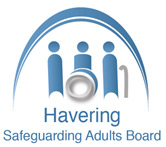Professional Curiosity
Introduction
Nurturing Professional Curiosity and challenge are a fundamental aspect of working together to keep children, young people and adults safe from harm. It is one of our recommendations for strengthening local practice from our Case Review Working Group.
Professional curiosity is an emerging theme in the Safeguarding Adult Reviews (SARs) Child Safeguarding Practice Reviews (CSPRs) Domestic Homicide Reviews (DHRs) and other reviews completed in Havering, and this finding is reflected nationally. Although it has long been recognised as an important concept in safeguarding children practice it is equally relevant to work with adults.
This practice guidance raises awareness of the need for professional curiosity or respectful uncertainty as it is sometimes called. It is designed to help practitioners spot the signs of when a parent or carer may be using disguised compliance; and advise where and how to access help and services.
What is Professional Curiosity?
Professional Curiosity is the capacity and skills of communication to explore and understand what is happening for a person, rather than making assumptions or accepting things at face value. It requires skills of looking listening, asking direct questions and being able to hold difficult conversations. Professional Curiosity and challenge are a fundamental aspect of working together to keep adults and children safe from harm.
This has been described as the need for practitioners to practice ‘respectful uncertainty’ – applying critical evaluation to any information they receive and maintaining an open mind. In safeguarding the term ‘safe uncertainty’ is used to describe an approach which is focused on safety but that considers changing information, different perspectives and acknowledges that certainty may not be achievable. This approach is important in helping to identify abuse and neglect which can be less obvious and can ensure that the right information is gathered and shared to assess both needs and risks.
Being professionally curious is necessary to fully understand a situation and the risks an individual may face, which are not always immediately obvious. Being more curious as professionals and ‘digging deeper’ into areas where there is little, or no information will help to inform assessments and empower you to influence key moments of decision making to reduce risks for children and adults. Escalating concerns that could cause drift, delay and a shift in focus from the child’s or adults’ best interests shouldn’t be embraced as this may result in ineffective care.
Professional Curiosity practice guidance June 2023 (002)
Films:
Waltham Forest Safeguarding Partnership; Bitesize video guide to Professional Curiosity
Rochdale Safeguarding Partnerships; video Think Family Approach to Safeguarding
Nottingham City Council, NHS Nottingham City CCG and the NCSCB have jointly commissioned a video animation to encourage practitioners to identify children as ‘Was Not Brought’ as opposed to ‘Did Not Attend’ when referring to them not being presented at medical appointments; Re-thinking did not attend
7 Minute briefing Professional Curiosity
